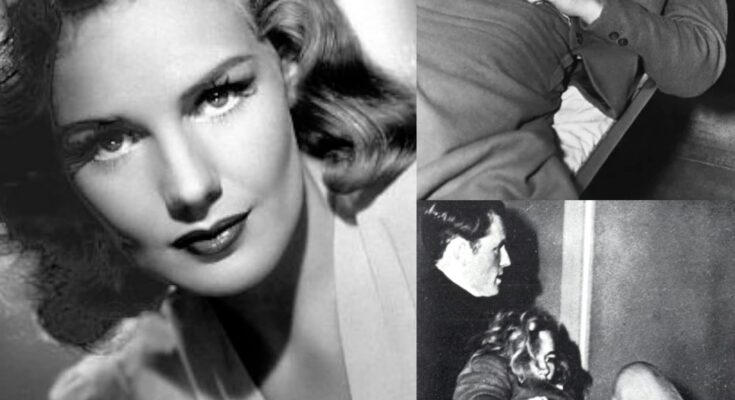Frances Farmer was a luminous talent, her presence on screen electric with a raw, unpolished brilliance that Hollywood rarely allowed to shine. There was something magnetic about her—the camera adored her sharp, expressive features and the haunted intelligence in her eyes. When she delivered a line, it carried more than just emotion; it carried conviction, intellect, and a refusal to be anything less than authentic. In an industry obsessed with illusion, Frances was startlingly real.

Her early career was marked by rapid success. She stunned audiences on Broadway and made a strong impression in Hollywood films, quickly gaining a reputation as a rising star. But Frances Farmer wasn’t content to simply be a puppet of the studio system. She questioned authority and spoke out against the hypocrisy of the film industry, refusing to mold herself into the docile starlet so many studios preferred. Her independence was rare and unnerving to those in power.
As she grew more outspoken, the labels began to attach themselves: difficult, unstable, rebellious. In truth, she was none of those things in the way they implied. Frances was a woman unwilling to be silenced, living in a time when that alone was enough to spark suspicion. She battled mental health issues, yes—but instead of receiving compassion or understanding, she became a target of control. Her nonconformity was pathologized, her resistance punished.

The next chapter of her life turned into a living nightmare. Frances was institutionalized against her will and subjected to brutal psychiatric treatments. In mid-century America, such care often resembled torture more than therapy: ice baths, electroshock, insulin shock, isolation. Whether or not she underwent a lobotomy remains debated, but what is certain is that the system meant to help her instead crushed her. She was treated as a problem to be fixed, not a person to be healed.
When she was finally released, the Frances Farmer the world once admired was irrevocably changed. She attempted to rebuild her life, even returning to the screen in minor roles, but the industry had moved on—and so had the world. The fire that once defined her performances had dimmed, worn down by years of trauma and neglect. Hollywood had no space for damaged women, especially those who reminded it of its own cruelty.

Her story became mythologized—twisted into cautionary tales, turned into biographies and movies that often focused more on her breakdowns than her brilliance. Frances became a symbol, but often for the wrong things: the fallen star, the madwoman, the tragic figure undone by her own volatility. Lost in all that was the complexity of who she truly was—a fiercely intelligent artist who challenged a system that couldn’t contain her.

And yet, Frances Farmer’s legacy is more than her suffering. She was brave in her refusal to compromise, unflinching in her individuality, and enduring in the face of monstrous odds. Her story resonates because it is not unique—because too many women, then and now, are still punished for defiance, still silenced for being too much of themselves. Her tragedy exposes a system that punishes authenticity.
In remembering Frances Farmer, we are forced to confront uncomfortable truths about how society treats women who do not conform, especially those battling mental illness. Her life was a portrait of squandered potential and institutional betrayal—but also of unyielding spirit. She deserved so much more. And perhaps the most haunting thing about her story is just how relevant it remains today.



